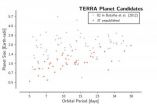(Press-News.org) Patients who take a triple combination of blood pressure drugs and common painkillers are at an increased risk of serious kidney problems, especially at the start of treatment, finds a study published on bmj.com today.
Although the absolute risk for individuals is low, it is still something doctors and patients should be aware of, say the researchers.
Acute kidney injury (also known as kidney failure) is a major public health concern. It occurs in more than 20% of hospital inpatients and is associated with around half of all potentially preventable deaths in hospital. It is often triggered by adverse reactions to drugs, but little is known about the safety of different drug combinations.
So a team of researchers from the Jewish General Hospital and McGill University in Montreal, Canada, set out to assess whether certain combinations of drugs to lower blood pressure (antihypertensive drugs) and non-steroidal anti-inflammatory drugs (NSAIDs) are linked to an increased risk of kidney injury.
These drugs are commonly prescribed together, particularly in elderly people with several long term conditions.
Using the world's largest computerised database of primary care records (CPRD), they identified 487,372 people who received antihypertensive drugs between 1997 and 2008. Drugs included angiotensin converting enzyme (ACE) inhibitors, angiotensin receptor blockers (ARBs) and diuretics, with NSAIDs.
Patients were tracked for nearly six years, during which time 2,215 were diagnosed with acute kidney injury that prompted admission to hospital or dialysis (7 in 10,000 person years).
The results show that patients taking a double therapy combination of either a diuretic or an ACE inhibitors or ARB with an NSAID were at no increased risk of kidney injury. However, a triple therapy combination of a diuretic with an ACE inhibitor or ARB and an NSAID was associated with a 31% higher rate of kidney injury, particularly elevated in the first 30 days of treatment during which it was 82% higher.
These results remained consistent after adjusting for confounding factors and controlling for other potential sources of bias.
The authors conclude that, "although antihypertensive drugs have cardiovascular benefits, vigilance may be warranted when they are used concurrently with NSAIDs." They add: "In particular, major attention should be paid early in the course of treatment, and a more appropriate choice among the available anti-inflammatory or analgesic drugs could therefore be applied in clinical practice."
In an accompanying editorial, researchers at the London School of Hygiene and Tropical Medicine say this study "is an important step in the right direction" but "probably underestimates the true burden of drug associated acute kidney injury."
They suggest that clinicians advise patients of the risks and be vigilant for drug associated acute kidney injury, and say "the jury is still out on whether double drug combinations are indeed safe."
###
Research: Concurrent use of diuretics, angiotensin converting enzyme inhibitors, and angiotensin receptor blockers with non-steroidal anti-inflammatory drugs and risk of acute kidney injury: nested case-control study
Editorial: Safety of co-prescribing NSAIDs with multiple antihypertensive agents
Triple mix of blood pressure drugs and painkillers linked to kidney problems
Absolute risk still low, but doctors and patients should be vigilant
2013-01-09
ELSE PRESS RELEASES FROM THIS DATE:
Cancer screening unlikely to benefit patients with a short life expectancy
2013-01-09
Breast and colorectal cancer screening should be targeted towards patients with a life expectancy greater than 10 years: for any shorter life expectancy the harms are likely to outweigh the benefits, concludes a study published on bmj.com today.
The authors stress that their results "should not be used to deny screening for patients with limited life expectancy" but "should inform decision making which aims to account for patient preferences and values while maximising benefits and minimising risks."
Guidelines recommend screening healthy older patients because complications ...
BMJ raises concerns over the effectiveness of a costly and invasive procedure for melanoma
2013-01-09
A special report published by the BMJ today finds that thousands of melanoma patients around the world are undergoing an expensive and invasive procedure called sentinel node biopsy, despite a lack of clear evidence and concerns that it may do more harm than good.
Although not recommended for routine use in England, it has become the standard care for melanoma patients in several countries including the United States, where it was estimated to cost over $686m in 2012.
Melanoma is the fifth most common cancer in the UK, affecting one in 60 people. In the US it affects ...
Reduction in air pollution from wood stoves associated with significantly reduced risk of death
2013-01-09
Male deaths from all-causes, but particularly cardiovascular and respiratory disease, could be significantly reduced with a decrease in biomass smoke (smoke produced by domestic cooking and heating and woodland fires), a paper published today on bmj.com suggests.
The researchers say this could have significant impact on further interventions to reduce pollution from this source.
Although a large amount of research has been carried out on the adverse health effects of air pollution, no studies have reported reductions in deaths associated with interventions to reduce ...
First oral drug for spinal cord injury improves movement in mice, study shows
2013-01-09
COLUMBUS, Ohio – An experimental oral drug given to mice after a spinal cord injury was effective at improving limb movement after the injury, a new study shows.
The compound efficiently crossed the blood-brain barrier, did not increase pain and showed no toxic effects to the animals.
"This is a first to have a drug that can be taken orally to produce functional improvement with no toxicity in a rodent model," said Sung Ok Yoon, associate professor of molecular & cellular biochemistry at Ohio State University and lead author of the study. "So far, in the spinal cord ...
Synthetic 'poop' can cure C. difficile infection, study finds
2013-01-09
A synthetic "poop" developed at the University of Guelph can cure nasty gastrointestinal infections caused by Clostridium difficile, a toxin-producing bacterium.
A study on the artificial stool was published today in the inaugural issue of Microbiome, a new peer-reviewed science journal.
The stool – a "super-probiotic" called RePOOPulate – was created by Guelph microbiologist Emma Allen-Vercoe to replace human fecal matter used in stool transplants, a known treatment for C. difficile.
She made the super-probiotic from purified intestinal bacterial cultures grown ...
Earth-size planets common in galaxy
2013-01-09
An analysis of the first three years of data from NASA's Kepler mission, which already has discovered thousands of potential exoplanets, contains good news for those searching for habitable worlds outside our solar system.
It shows that 17 percent of all sun-like stars have planets one to two times the diameter of Earth orbiting close to their host stars, according to a team of astronomers from the University of California, Berkeley, and the University of Hawaii at Manoa.
This estimate includes only planets that circle their stars within a distance of about one-quarter ...
'Tricorder' invention could put medical diagnosis and terrorism prevention in the palm of the hand
2013-01-09
COLUMBIA, Mo. -- The hand-held scanners, or tricorders, of the Star Trek movies and television series are one step closer to reality now that a University of Missouri engineering team has invented a compact source of X-rays and other forms of radiation. The radiation source, which is the size of a stick of gum, could be used to create inexpensive and portable X-ray scanners for use by doctors, as well as to fight terrorism and aid exploration on this planet and others.
"Currently, X-ray machines are huge and require tremendous amounts of electricity," said Scott Kovaleski, ...
'Universal' personality traits may not be universal after all
2013-01-09
(Santa Barbara, Calif.) –– For decades, consensus among psychologists has held that a group of five personality traits –– or slight variations of these five –– are a universal feature of human psychology. However, a study by anthropologists at UC Santa Barbara raises doubt about the veracity of that five-factor model (FFM) of personality structure as it relates to indigenous populations. Their findings appear in the current issue of the American Psychological Association's Journal of Personality and Social Psychology.
Studying the Tsimane, an isolated indigenous group ...
Counting the twists in a helical light beam
2013-01-09
Cambridge, Mass. - January 8, 2013 - At a time when communication networks are scrambling for ways to transmit more data over limited bandwidth, a type of twisted light wave is gaining new attention. Called an optical vortex or vortex beam, this complex beam resembles a corkscrew, with waves that rotate as they travel.
Now, applied physicists at the Harvard School of Engineering and Applied Sciences (SEAS) have created a new device that enables a conventional optical detector (which would normally only measure the light's intensity) to pick up on that rotation.
The ...
New marker of drug response may speed pace of lung cancer prevention trials
2013-01-09
Testing medicines to prevent lung cancer requires treating many thousands of high-risk individuals and then waiting 5, 10 or 15 years to discover which of them develop cancer and which, if any, experience survival benefit from the treatment. A University of Colorado Cancer Center study recently published in the journal Cancer Prevention Research proposes a possible waypoint on the way to benefit, which if validated, could dramatically reduce the number of patients needed and time required to test drugs for lung cancer prevention.
"Chemoprevention is an important approach ...
LAST 30 PRESS RELEASES:
Invisible battery parts finally seen with pioneering technique
Tropical forests generate rainfall worth billions, study finds
A yeast enzyme helps human cells overcome mitochondrial defects
Bacteria frozen in ancient underground ice cave found to be resistant against 10 modern antibiotics
Rhododendron-derived drugs now made by bacteria
Admissions for child maltreatment decreased during first phase of COVID-19 pandemic, but ICU admissions increased later
Power in motion: transforming energy harvesting with gyroscopes
Ketamine high NOT related to treatment success for people with alcohol problems, study finds
1 in 6 Medicare beneficiaries depend on telehealth for key medical care
Maps can encourage home radon testing in the right settings
Exploring the link between hearing loss and cognitive decline
Machine learning tool can predict serious transplant complications months earlier
Prevalence of over-the-counter and prescription medication use in the US
US child mental health care need, unmet needs, and difficulty accessing services
Incidental rotator cuff abnormalities on magnetic resonance imaging
Sensing local fibers in pancreatic tumors, cancer cells ‘choose’ to either grow or tolerate treatment
Barriers to mental health care leave many children behind, new data cautions
Cancer and inflammation: immunologic interplay, translational advances, and clinical strategies
Bioactive polyphenolic compounds and in vitro anti-degenerative property-based pharmacological propensities of some promising germplasms of Amaranthus hypochondriacus L.
AI-powered companionship: PolyU interfaculty scholar harnesses music and empathetic speech in robots to combat loneliness
Antarctica sits above Earth’s strongest “gravity hole.” Now we know how it got that way
Haircare products made with botanicals protects strands, adds shine
Enhanced pulmonary nodule detection and classification using artificial intelligence on LIDC-IDRI data
Using NBA, study finds that pay differences among top performers can erode cooperation
Korea University, Stanford University, and IESGA launch Water Sustainability Index to combat ESG greenwashing
Molecular glue discovery: large scale instead of lucky strike
Insulin resistance predictor highlights cancer connection
Explaining next-generation solar cells
Slippery ions create a smoother path to blue energy
Magnetic resonance imaging opens the door to better treatments for underdiagnosed atypical Parkinsonisms
[Press-News.org] Triple mix of blood pressure drugs and painkillers linked to kidney problemsAbsolute risk still low, but doctors and patients should be vigilant


